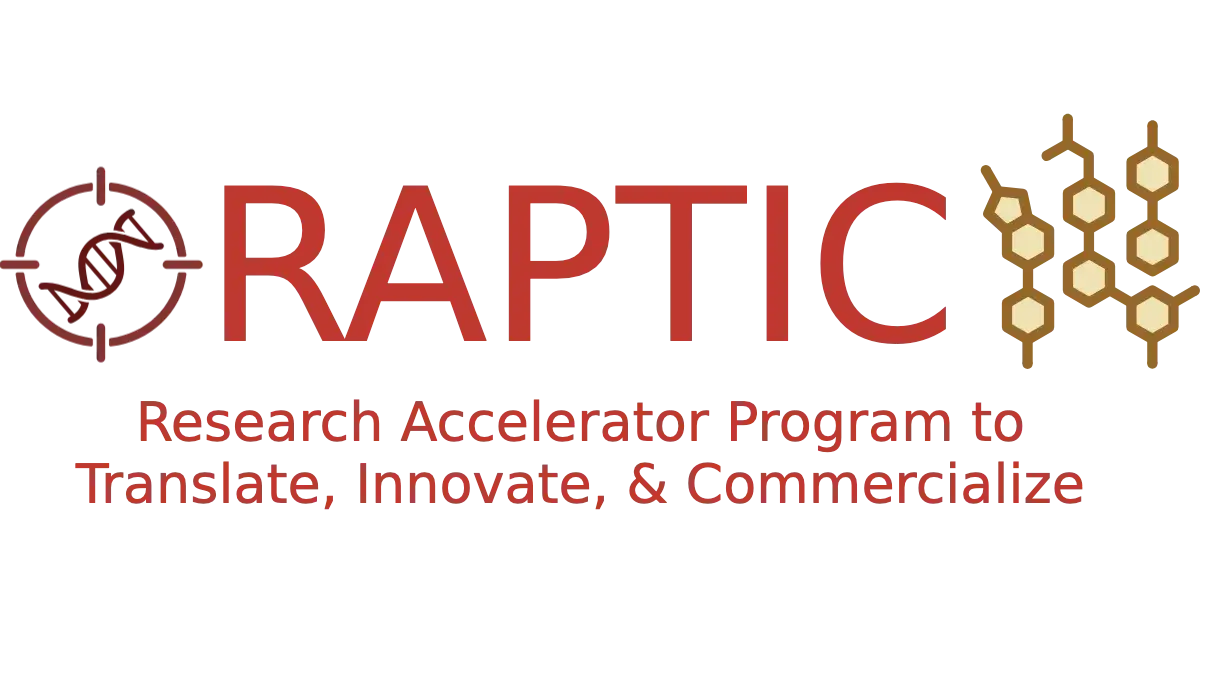RAPTIC Application Process and Schedule

RAPTIC
RAPTIC supports faculty doing innovative research in the medical, health or biomedical fields.
FY26 Cohort - Application Period Closed
Applications are open to participating college faculty for the RAPTIC (Research Accelerator Program to Translate, Innovate and Commercialize) FY26 cohort. The current participating colleges include: College of Medicine, College of Engineering, College of Pharmacy, College of Veterinary Medicine and College of Education and Human Ecology.
The Mission of RAPTIC is to facilitate and accelerate progress in translational and clinical research at Ohio State by increasing awareness of and access to key resources and training, in order to identify and realize innovative ideas with applications that can be protected by IP, funded, commercialized and implemented in healthcare or biomedical settings.
Please contact program founder Dr. Kristy Townsend to obtain an application form.
New for FY26: Two scholarship seats are available for non-participating colleges, as well as dedicated participant seats in all participant colleges. Applications were due by August 10, 2025, but you may still register to attend individual learning sessions.
Learning Sessions FY26
Registration is open to participating college faculty for the RAPTIC Learning Sessions, held in-person monthly from September 2025 - May 2026.
The Mission of RAPTIC is to facilitate and accelerate progress in translational and clinical research at Ohio State by increasing awareness of and access to key resources and training, in order to identify and realize innovative ideas with applications that can be protected by IP, funded, commercialized and implemented in healthcare or biomedical settings. Applications are open now for participants in participating colleges and for two scholarship seats in non-participating colleges. Please contact program founder Dr. Kristy Townsend with any questions.
“I’m afraid for this to end. I was able to get ideas in the group coaching setting and then execute it in my 1:1 research coaching sessions.”